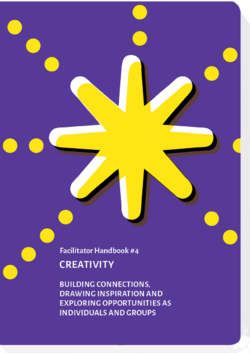1. Confidence about your role
Have the goal of your unit always in mind. If needed, help the group in seeing the goal again. Contribute to clarity, in example by paraphrasing aspects, opinions, findings or visual suppport. Enforce the beforehand agreed rules for discussion.
2. Learners are experts
Learners are experts on their own lives. They know what is best for them. They are capable of determining their own needs and goals. They are willing to learn. Show your confidence in their ability to overcome problems. Use Constructive Questions. Let participants formulate their answers and conclusions.
3. Your limitations and qualifications
Facilitators should be aware of their professional qualifications and limitations. Hear better, speak less.
4. Impartiality
Facilitators do not judge participants. They don't give more or less weight to the statements of individual participants. They try to include every participant's perspective in the discussion. Using boards for documenting ideas, they recognize every idea mentioned, regardless of whether they find it relevant, or whether they agree or not.
5. Cohesive body language
Body language, behavior in the space, and intonation all support the moderating role of facilitators, and help participants respond to what a facilitator is saying.
6. Other perspectives
Facilitators encourage different perspectives, respect divergent opinions, and accept minority positions. They respond actively to stigmatization or stereotyping by the participants.
7. Encouraging disagreement
Facilitators treat disagreement or conflict constructively and view the open communication of disagreement as a sign of trust and confidence in the facilitators to deal with it.
8. Encouraging alternative paths and methods
Facilitators allow things to be done differently. They demonstrate flexibility in the way a goal can be achieved, and are willing to change plans accordingly.
9. Fairness
Facilitators and participants negotiate rules and common norms. They are committed to following and enforcing these rules actively.
10. Patience
Facilitators stay patient when decisions or participants need time. They negotiate the speed of a process with their participants.
Handbook for Facilitators: Creativity Handbook
This text was published in: N. Zimmermann (ed.), E. Leondieva (ed.), M. Gawinek-Dagargulia (ed.) (2018). Creativity Handbook. Building connections, drawing inspirations & exploring opportunities as individuals & groups.Competendo Handbook for Facilitators.






